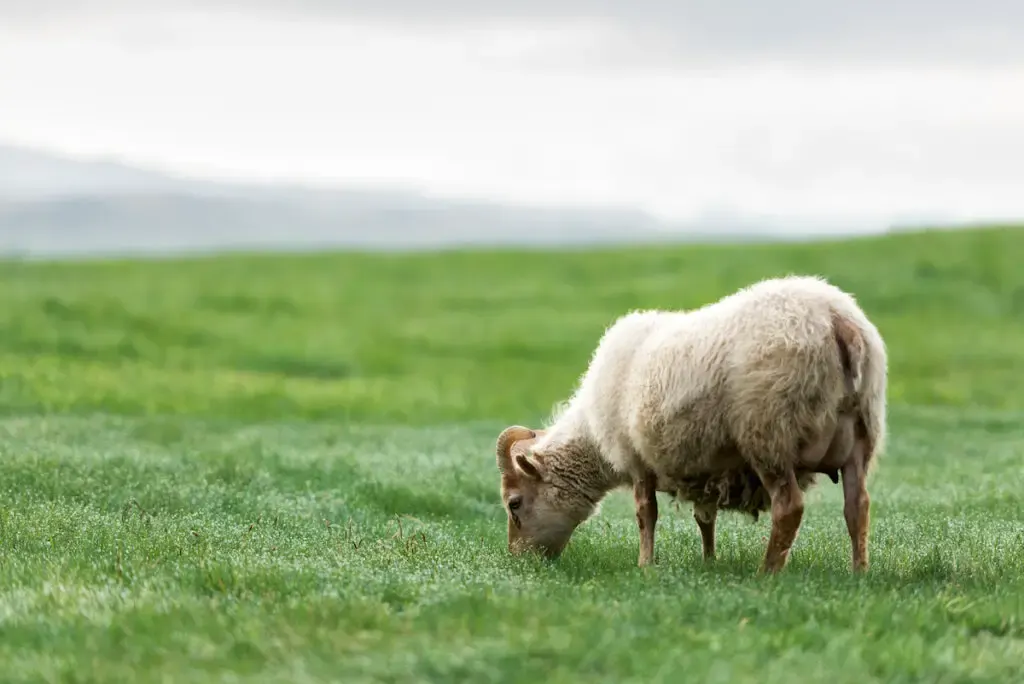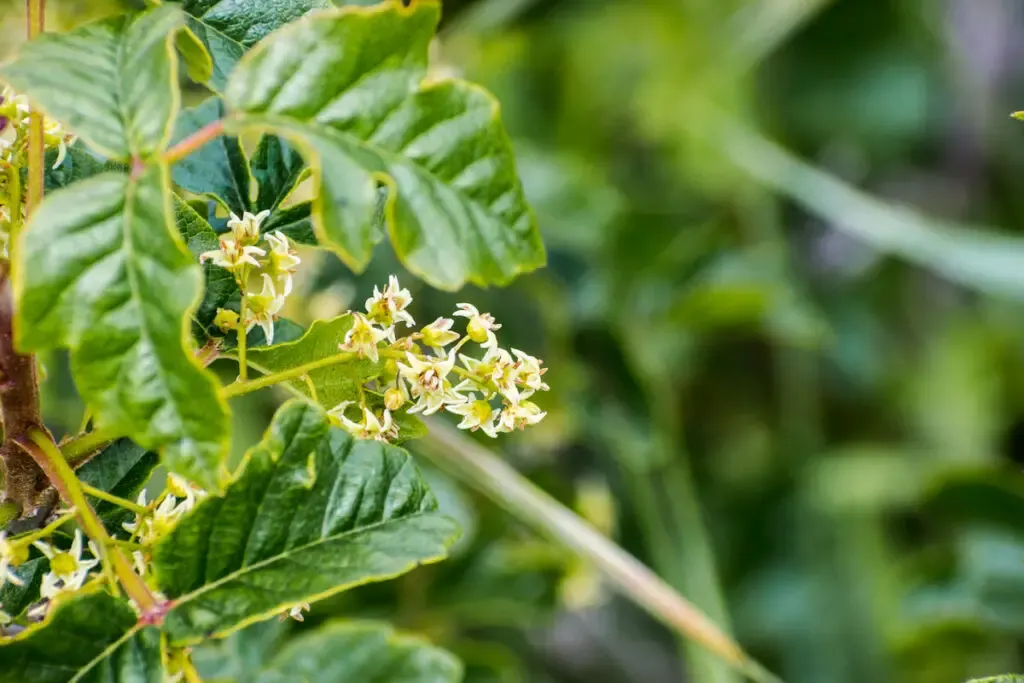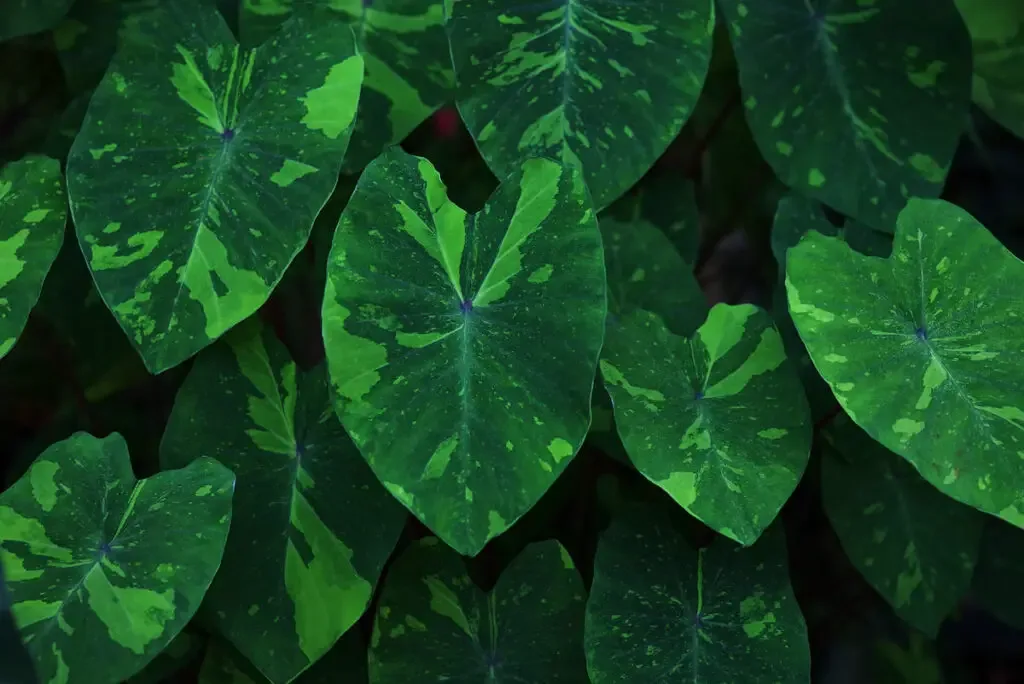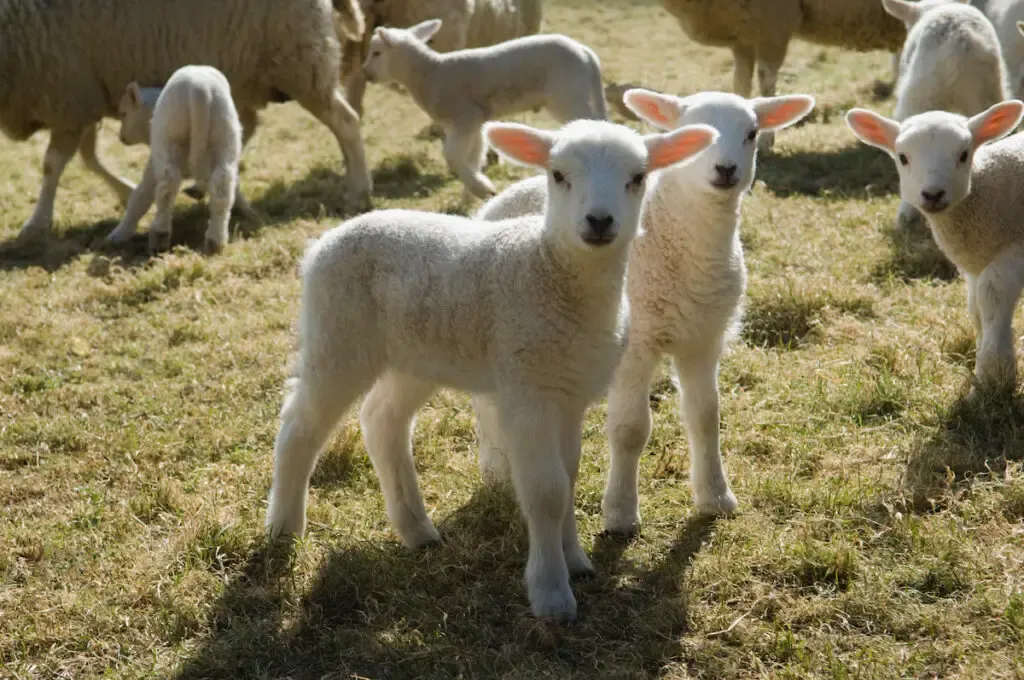Do you have sheep? Raising sheep is not so difficult. It is fun to raise sheep until you see your sheep eating what they should not eat and they get you worried.
For example, some homesteaders have seen their sheep eating poison ivy.
Can sheep eat poison ivy?
Sheep can eat poison ivy without harm. Even though poison ivy does not make up a large part of a sheep’s diet, sheep sometimes eat poison ivy and do not get hurt.

Is poison ivy safe for sheep? Should you prevent your sheep from eating poison ivy? Continue reading.
Can Sheep Eat Poison Ivy?
Sheep can eat poison ivy. Let us consider how safe it is.
Are Poison Ivy Leaves Safe for Sheep?
So far, no harm has been reported for sheep and goats eating poison ivy. Poison ivy is not a deadly plant, it is just our human body’s reaction to the plant that makes us intolerant of it.
If sheep find poison ivy harmful, they will avoid it.
Does Eating Poison Ivy Leaves Affect the Milk of Your Sheep?
When sheep eat poison ivy, they digest it like every other food that they eat. Poison ivy does not affect the taste, quality, nor safety of sheep milk.
Should You Prevent Your Sheep from Eating Poison Ivy?
If you are not comfortable with your sheep eating poison ivy, you should prevent them from eating it. Here are a few ways to prevent your sheep from eating poison ivy:
- Train Your Sheep Not To Eat Poison Ivy: Sheep are obedient learners. If you train them well, they will avoid poison ivy.
- Give Your Sheep Enough Feed and Treats: If sheep have sufficient feed in their barn and grass around, they may not search for poison ivy to eat.
- Use a Fence or Demarcation: If your sheep are still searching for poison ivy after various efforts, separate your sheep from the plant by using a fence.
If you like, you can remove every poison ivy plant from around your yard.

Other Painful or Poisonous Plants Sheep Can Eat
Here are some other plants that sheep can eat (even though they may deter you and other animals):
1. Poison Oak
Poison oaks (Toxicodendron diversilobum) are shrubs or woody vines that can cause rashes and other forms of allergies in the skin. Sheep can eat poison oak just like poison ivy without harm.
2. Poison Sumac
Paragraph (Toxicodendron vernix) is a shrub or small tree in the same genus as poison oak. It causes similar symptoms in people, but not in sheep.
3. Stinging Nettle
Stinging nettle (Urtica dioica) is found in various parts of the world. Some side effects of consuming this plant are diarrhea, upset stomach, constipation, etc. Sheep, however, can eat the leaves of this plant with no harmful effects.
Popular and Recommended Food Sources for Sheep
Here are some food ideas for sheep:
1. Grasses
Give your sheep access to a lot of grass. Sheep are grazers, so they love eating grass and other low-growing plants. Grass has enough nutrients for sheep, but you may sometimes need to supplement it with other food sources.
Examples of grass for sheep are:
- Fescues
- Millet
- Napier grass
- Guinea grass
- Bermuda grass
You can give fresh or dried grass (hay) to sheep.
2. Sheep Pellets
Sheep pellets are similar to goat pellets, but sheep pellets are specifically made for sheep. Sheep pellets are made with alfalfa, grains, seeds.
You should give pellets to sheep especially when other food sources are not as readily available.
3. Hay and Straw
Hay is the dried form of grass, while straw is the dried form of the byproduct of several plants that have been harvested for their seeds and grains.
Just like regular grass, hay and straw contain enough nutrients for sheep.
What’s more, you can use hay or straw as bedding in their pen.
4. Seeds and Grains
Seeds and grains are healthy treats and food ideas for sheep. Examples of seeds that you can feed to sheep are:
- Watermelon seeds
- Pumpkin seeds
- Sunflower seeds
- Okra seeds
- Cucumber seeds
Examples of grains that you can feed to sheep are:
- Wheat
- Oats
- Barley
- Rye
- Sorghum
What is the difference between seeds and grains? All grains are seeds. Grains are just the seeds of various monocot plants such as maize. Seeds are the products of pollination (fertilization) in plants.
5. Fruits and Vegetables
Sheep can eat fruits and vegetables. As a matter of fact, sheep love fruits and vegetables and cannot get enough of them.
Examples of vegetables that sheep can eat are:
- Cabbage
- Microgreens
- Kale
- Broccoli
- Cauliflowers
Examples of fruits that sheep can eat are:
- Grapes
- Bananas
- Apples
- Watermelons
- Pineapples
Sheep should eat fewer fruits than vegetables because fruits may contain much more sugar than sheep need. For vegetables, however, they are just like leaves and grass, so they can eat as much as they want.
Now that you know various items that sheep can eat, what should they not eat? Continue reading.

Plants and Other Types of Food That Sheep Cannot Eat
Here are some examples of plants and other food sources that sheep should not eat.
1. Nightshade Plants
Plants in the Solanaceae family are commonly referred to as nightshade plants. Nightshades contain a toxin called solanine. This toxin is harmful to sheep and other animals.
Examples of nightshade plants are:
- Tomato plant
- Potato plant
- Eggplant
- Bell pepper plant
- Datura plants
Even though sheep cannot eat the leaves, stems, and other parts of nightshades, they can eat tomato, eggplant, and pepper fruits. They can also eat potato tubers.
2. Elephant Ear Plants
Taro leaves are large and look edible, but they contain needle-shaped raphides and calcium oxalate. These features make elephant ears harmful to sheep.
Your sheep will probably not eat taro leaves in the first place, but if they do, you should prevent them from eating the leaves.
3. Several Ornamental Plants
These pretty plants are toxic or harmful for your sheep:
- Lilacs
- Mother of Thousands
- Air Plants
- Mother of Millions
- Lily of the Valley
- Azaleas
- Delphinium
- Rhododendrons
- Oleanders
Do not allow your sheep to eat any ornamental plant unless you are sure that it is safe.
4. Onions and Garlic
Onion and garlic bulbs simply contain too much sulfur for sheep. During fermentation (i.e. an activity that goes on in the rumen of sheep) onions and garlic and release gases that cause bloating in your sheep.
5. Foods from Dumpsites
Sheep should not eat everything (just because you think that they can). Foods from dumpsites are contaminated and unsafe for sheep.
Now you know what to avoid, right?

Related Questions and Answers
I know that you have a few questions. Here are your answers:
1. Why Does Poison Ivy Itch?
Poison ivy contains an oil called urushiol. This oil causes rashes, allergies, and various other symptoms in people and a few animals. It is most effective when it has direct contact with the skin.
2. Can You Pet Sheep That Ate Poison Ivy?
Even though poison ivy will not harm sheep, it can still harm you. The body of your sheep is probably covered in poison ivy leaves or oil, so you should not pet sheep that just ate poison ivy.
If you must handle that sheep, bathe or cover the sheep first so the oils are not passed on to you.
3. Is it Normal for Sheep to Voluntarily Eat Poisonous Plants?
Sheep will not eat plants that can harm them. Sheep have a good instinct that can prevent them from eating harmful plants.
If your sheep are young, sick, or just curious, however, they can eat a few harmful plants. You should call your vet if you see your sheep is eating weird plants that can harm them.
4. Why are Leaves and Other Plant Sources Sufficient for Sheep?
Sheep are not just herbivores, they are ruminants. As ruminants, sheep have microbes in their rumen (an organ that is part of their stomach). These microbes help sheep to digest some items that other non-ruminant animals cannot.
Aside from the ability to digest various items, the microbes in the rumen of sheep also provide proteins to the sheep, so sheep do not need to directly consume as many proteins when compared to other non-ruminant farm animals.
This is why they can depend on leaves as leaves contain both proteins and non-protein nitrogen.
5. Can Sheep Eat Paper?
Remember that sheep are ruminants. An example of a material that ruminant animals can digest but we and other non-ruminant animals cannot is paper. Paper is made of cellulose and ruminants can digest cellulose.
Whenever you see your sheep or goats eating plain paper without ink and other harmful chemicals, do not be bothered.
Has your question been answered?
Final Thoughts
Even though you are wary of poison ivy, your sheep are not and can eat poison ivy leaves. Sheep eat and digest poison ivy leaves just like every other plant.
Make sure to protect yourself when handling sheep who have been in contact with or eating poison ivy, so that they don’t pass the oils on to your skin.
